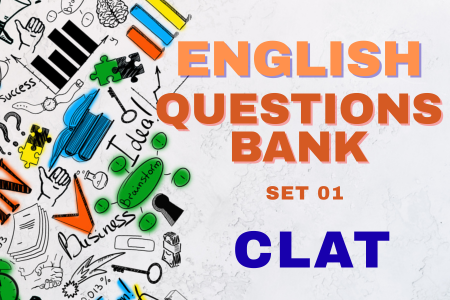Passage-Based English Comprehension – 26th October 2025
Read the passage carefully and answer the questions that follow.
Passage
In recent years, the rise of artificial intelligence (AI) in the legal domain has transformed how law firms and courts operate. AI-powered tools can now draft legal documents, conduct case law research, and even predict case outcomes with considerable accuracy. While these advancements promise efficiency and cost reduction, they also raise significant concerns regarding ethics, accountability, and employment in the legal profession. Critics argue that over-reliance on AI may reduce critical thinking among law students and young advocates, as automated systems take over analytical tasks. On the other hand, proponents highlight that AI can handle repetitive and data-intensive work, freeing lawyers to focus on strategic decision-making and client advocacy. Legal educators now face the challenge of integrating AI literacy into curricula, ensuring that future lawyers can leverage technology responsibly while retaining the human judgment necessary for justice.
Questions
- What is the main idea of the passage?
A. AI will replace lawyers entirely in the future
B. AI is transforming legal work but raises ethical and professional concerns
C. AI is a tool exclusively for law students’ research
D. Legal education should avoid using AI - According to the passage, what is one advantage of AI in law?
A. It eliminates the need for human judgment
B. It handles repetitive and data-intensive tasks efficiently
C. It reduces ethical concerns in legal practice
D. It guarantees success in all legal cases - What concern do critics express about AI in legal practice?
A. AI is too expensive for law firms
B. AI may reduce critical thinking among law students and young lawyers
C. AI cannot analyze case laws accurately
D. AI will increase the workload of lawyers - How does AI benefit lawyers according to the passage?
A. By replacing them in courts
B. By handling routine tasks, allowing focus on strategy and advocacy
C. By eliminating the need for legal education
D. By ensuring fairness in judgments - What challenge do legal educators face regarding AI?
A. Designing AI systems for court use
B. Integrating AI literacy while maintaining critical reasoning in curricula
C. Reducing student reliance on computers entirely
D. Ensuring AI handles ethical decision-making - The phrase “leverage technology responsibly” most nearly means:
A. Use technology only when supervised
B. Exploit technology without restrictions
C. Employ technology in a controlled and ethical manner
D. Avoid using technology in sensitive legal matters - What does the passage suggest about AI’s impact on employment in law?
A. AI will create more jobs than it eliminates
B. AI may reduce some traditional legal roles while creating new opportunities
C. AI has no impact on employment in the legal sector
D. AI will only affect law students, not practicing lawyers - Which of the following best summarizes the author’s perspective?
A. AI is entirely beneficial and should replace human lawyers
B. AI has advantages but must be integrated carefully to preserve ethics and critical thinking
C. AI is harmful and should be banned from legal practice
D. AI is irrelevant to legal education
Answer Key
1-B, 2-B, 3-B, 4-B, 5-B, 6-C, 7-B, 8-B
Also Solve Current Affairs Questions – Legal Current Affairs – 25th October 2025






